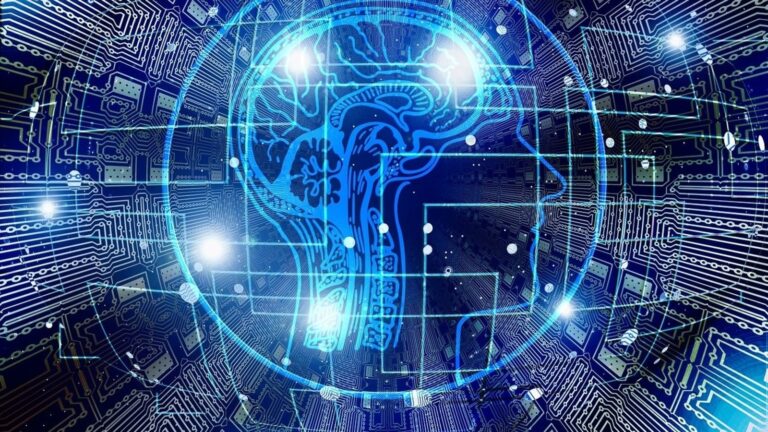Over the past decade, artificial intelligence (AI) has changed the way it communicates, learns, and makes decisions, from a science fiction buzzword to a fundamental aspect of office software. Generation Z, born between 1997 and 2012, is at the forefront of this revolution. While they adapt to AI, they are actively shaping the way it is used.
 Premium
Premium For Gen Z, AI is not a great accessory to work with. It’s how they think, plan, and Solve the problem. As this generation emerges as the voice of the workforce majority, organizations are challenging themselves to modify leadership, culture and governance as they are familiar with AI agents and even software equipment that automate, optimize and predict tasks.
In today’s workplace, AI agents are more than an automated script. They became productive working companions for Gen Z, making them smarter together, work together, catching up to progress and gaining new skills. AI now coordinates shared workspaces, updates project boards, and proposes collaborators based on previous experience. A clever dashboard compiles real-time performance metrics and allows you to re-adjust the methods without the need for quarterly check-in. For learning and career growth, AI will act as an on-demand mentor and provide guidance, troubleshooting and tailored recommendations at any time.
This always available support model resonates deeply with generations that value immediacy and autonomy. They don’t want to wait for feedback or rely solely on traditional reviews. Instead, they prefer to use AI-powered insights to quickly iterate and complement human arguments when deeper context is needed.
AI agents are valuable in providing information, prediction and real-time assistance, but do not align with human experience, empathy, or contextual judgment. The future of leadership does not involve choices between AI and humans, but rather embedding them effectively. For Gen Z, the perfect workplace is a frictionless collaboration that gives AI immediacy, independence to find unique solutions, and AI naturally fits into team workflows without fragmenting human touch.
Human leaders need to prioritize areas where AI cannot be done – those that cannot cultivate inclusive cultures, manage nuanced interpersonal relationships, and provide sophisticated mentorship. When leaders leverage AI capabilities along with inherent human inspiration and empathy, they cultivate a culture in which young workers feel both inspiration and potential.
As AI becomes increasingly integral to workplace choice, effective use is no longer voluntary and essential. General Z is often highly socially aware and demands openness and responsibility in the use of AI. This means that organizations need to establish a culture where employees can test AI without fear of error, and that all output complies with ethical and compliance requirements.
Bias mitigation is paramount. As AI algorithms learn from historical data, they may replicate human biases unless strictly supervised. Companies need to ensure diversity in their training data, which is taken from reliable sources, and human interventions have been established for decision-making that have meaningful impact. Those who successfully inject ethical AI practices not only reduce risk, but also gain the respect of young employees who want to see the technology used in fairness and outcomes.
Adoption of AI is not a technological change, it is a cultural change. To truly leverage AI-enhanced Gen Z workers, organizations must make AI use an integral part of their daily activities, not an add-on. They must encourage peer learning by enabling young workers to tailor AI best practices to others and develop a bottom-up culture of innovation. Above all, the use of AI should be consistent with the company’s mission, ethics and long-term vision.
When workplace culture promotes curiosity and experimentation, the creative energy of the workforce increases. Gen Z thrives in a culture where exploration is rewarded and encouraged, and where AI is seen as a tool to strengthen it rather than as an employment representation mechanism
There is still a continuing fear that AI will replace human employment. However, Gen Z has a different vision. AI is an ally, not an enemy. By automating boring and undervalued tasks, AI creates more time for creativity, strategic thinking and relationship building. These are all human assets. The AI agents improve through natural language processing, emotional intelligence and platform convergence, intensifying the interaction of human imagination and machine accuracy.
The future is defined by organizations that employ this human collaboration as the core driver of productivity, engagement and growth. Companies that do not employ this mentality risk not only adopting technology, but also becoming irrelevant to a generation that wants AI to become a fundamental part of how it performs its work.
The widespread use of Gen Z AI agents is more than just a generation-specific choice. This is a pre-view of future work. This group proves that AI can integrate smoothly and smoothly, not as a disruptor, but as a facilitator of more valuable contributions. Takeout is easy for business leaders. We will truly meet employee needs, combine AI capabilities with human leadership to promote engagement, and invest in AI solutions that will ethically control AI and create trust. Those who prioritize these things not only attract and maintain Gen Z talent, they will also be at the forefront of a work revolution where humans and AI coexist and prosper.
This article is written by Bhavesh Goswami, founder and CEO of Cloudthat.


